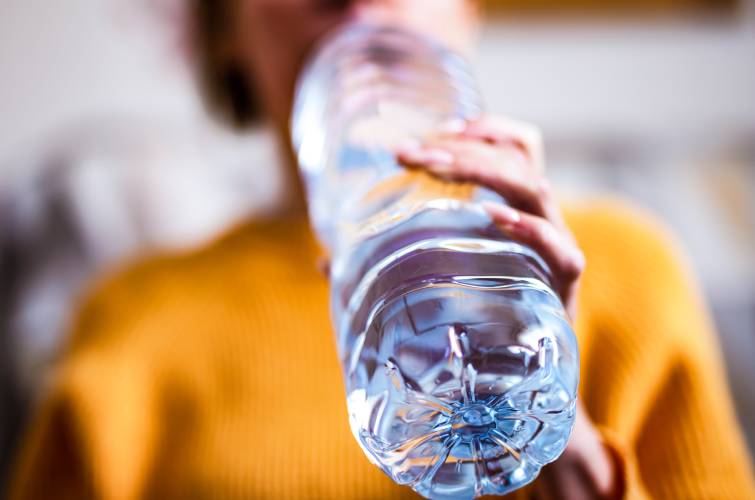
Bottled water may contain much more nanoplastic particles that can penetrate into body cells than scientists previously thought.
In the course of the study, published in the journal Proceedings of the National Academy of Sciences, researchers from Columbia University have presented a new technology for counting nanoparticles in bottled water,reports CNN.
Microplastics (nanoplastics) are polymer fragments ranging in size from 1 micrometer to 5 millimeters. Through the tissues of the digestive tract or lungs, they can enter the bloodstream and carry synthetic chemicals throughout the body.

“We found millions of nanoparticles, which can be inorganic, organic, or some other plastic particles,” said study co-author and researcher Beizhang Yang.
Nanoplastic particles in water were first detected in 2018 when scientists examined the composition of 11 different brands of drinking water.
Then, scientists found that each liter of water contained an average of 10 plastic particles wider than a human hair and about 300 smaller ones.
“The production of plastic uses chemicals that subsequently enter the human body. Because the body temperature is higher than outside, these chemicals migrate from the bottles and can end up in the liver, kidneys, brain, and even leak through the placental barrier to end up in the unborn child,” says study co-author Sherry Mason.
According to her, the study confirms the feasibility of expert advice, which recommends drinking tap water from glass or stainless steel vessels.
The advice also applies to other foods and beverages packaged in plastic, Mason added.

